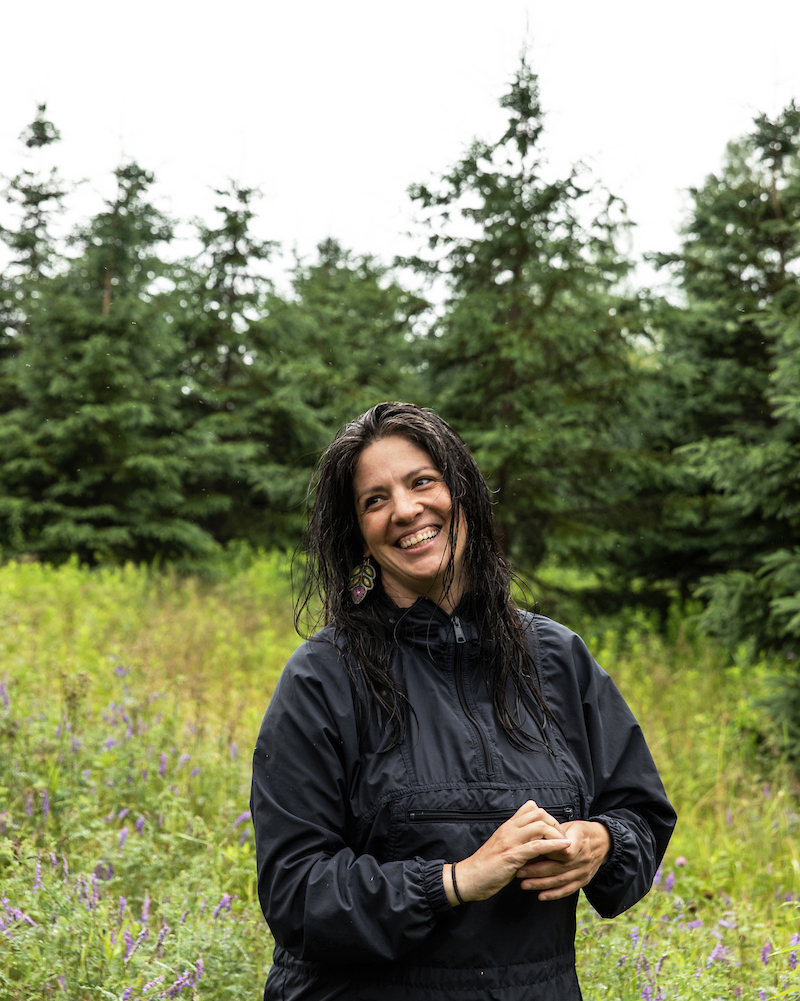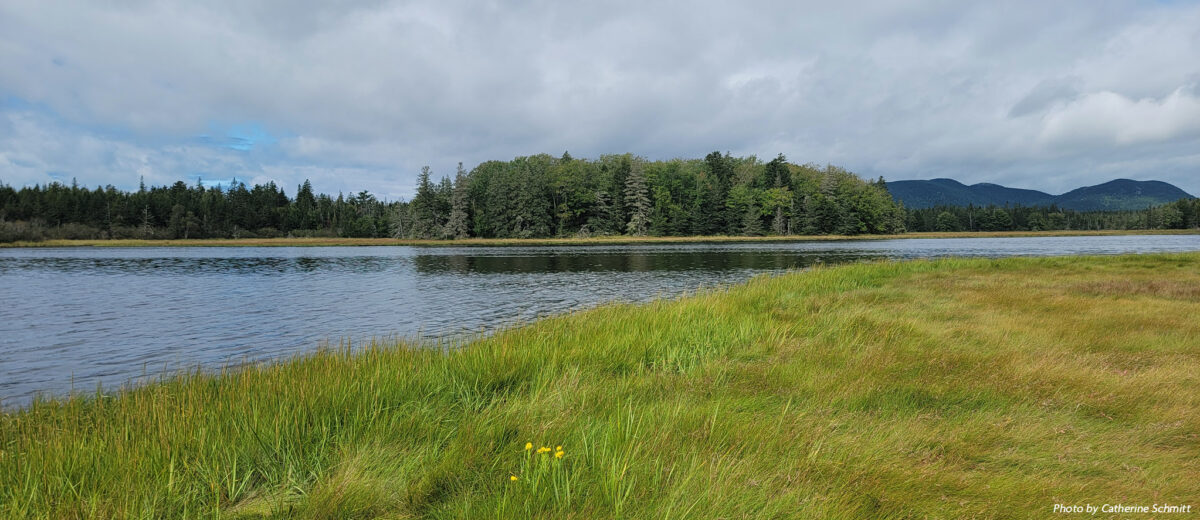Schoodic Institute at Acadia National Park is pleased to welcome Dr. Suzanne Greenlaw as Post-doctoral Scientist.
 Since 2017, Greenlaw has been working with Wabanaki communities in effort to restore Wabanaki sweetgrass (Anthoxanthum nitens) harvesting within Acadia National Park. In this new role, Greenlaw will continue to foster relationships between Wabanaki communities and the National Park Service in developing collaborative research to support Wabanaki plant gathering and mobilize Wabanaki-led priorities within Acadia National Park. Her work at Schoodic Institute will focus on Wabanaki-led restoration of both freshwater and coastal wetlands.
Since 2017, Greenlaw has been working with Wabanaki communities in effort to restore Wabanaki sweetgrass (Anthoxanthum nitens) harvesting within Acadia National Park. In this new role, Greenlaw will continue to foster relationships between Wabanaki communities and the National Park Service in developing collaborative research to support Wabanaki plant gathering and mobilize Wabanaki-led priorities within Acadia National Park. Her work at Schoodic Institute will focus on Wabanaki-led restoration of both freshwater and coastal wetlands.
Dr. Greenlaw, a citizen of the Houlton Band of Maliseet Indians, is an Indigenous ecologist, writer, and a traditional harvester focused on supporting Wabanaki land access and re-energizing cultural practices throughout Waponahkik. Her doctoral research at the University of Maine concentrated on creating Wabanaki black ash geospatial tools for emerald ash borer preparedness, and a gatherer-led sweetgrass harvest and stewardship study to address policy requirements for plant gathering. This work is supporting an emergent shared governance approach for monitoring and management of a culturally important species within Acadia National Park.
“Suzanne’s work to integrate and champion Wabanaki Indigenous Knowledge in conservation is truly groundbreaking,” said Acadia National Park program manager Rebecca Cole-Will. “She is forging new methodologies and models for the emerging and critical work of co-stewardship in the National Park Service.”
“With graceful and powerful communication skills, Suzanne will help Schoodic Institute continue to be a leader in the science of climate change adaptation, and support our commitment to recognizing and honoring many ways of knowing about our changing world,” said Schoodic Institute President and CEO Nicholas Fisichelli.
Read more about Greenlaw’s work and how Schoodic Institute is supporting co-stewardship in Park Science.
